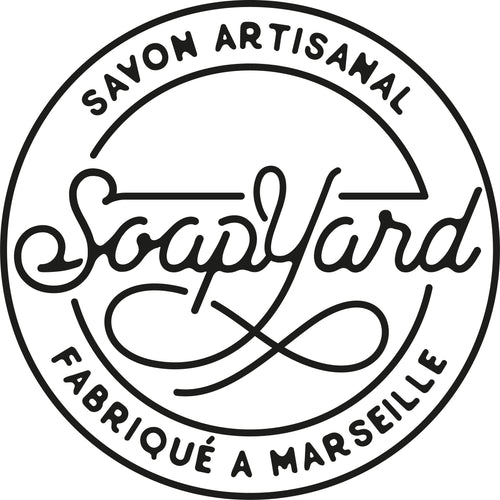LUSH has long been known for its vibrant, eco-friendly marketing and promise of "fresh, handmade" and "natural" products. Their branding focuses on sustainability, cruelty-free practices, and the idea of a cleaner, more organic lifestyle. However, while LUSH’s marketing may paint a picture of purity and authenticity, are their soaps really that different from traditional French soap like Soapyard’s? Let’s explore what’s behind the LUSH branding and how Soapyard offers a similar, yet more transparent, approach to natural skincare.
LUSH’s Natural Soap Promise – What’s in the Ingredients?
LUSH markets its soaps as natural, handmade, and kind to the environment, but what’s actually in those bright, fragrant bars? Many of their ingredients mirror the formulas of traditional soap but with a more curated, eco-friendly aesthetic.
-
Synthetic Fragrances & Additives:
Despite claims of "natural" fragrances, LUSH soaps often contain synthetic fragrances and artificial colorants. -
Palm Oil & Cleansing Agents:
Like Soapyard’s ingredients, palm oil-derived cleansing agents (Sodium Palm Kernelate, Sodium Lauryl Sulfate alternatives) are common in LUSH soaps, used for lathering and cleansing purposes. However, Lush has removed significant amounts of palm oil from their formulations, but they do not fully eliminate palm derivatives like SLS and other surfactants. Sustainability issues remain as Lush refuses to use RSPO-certified palm oil, citing concerns over "greenwashing" and the challenges of sourcing truly sustainable palm oil.【65†source】 -
Moisturizing Agents & Preservatives:
LUSH includes glycerin, shea butter, and other moisturizers, just like traditional French soap makers.
Why Soapyard’s French Soap Stands Out
At Soapyard, we believe in transparency, offering natural, traditional French soap that stays true to its heritage and sustainable values—without the need for overly complex marketing tactics. Here’s what sets our soaps apart:
-
Natural & Gentle Ingredients:
- Olive Oil, Coconut Oil, Shea Butter – all-natural and nourishing oils found in LUSH soaps, but Soapyard focuses on traditional methods of soap-making without excessive additives.
- No synthetic fragrances or SLS, ensuring a gentle, chemical-free cleansing experience.
-
Artisanal, Time-Honored Craftsmanship:
- Our soaps are made using Marseillaise techniques, emphasizing simplicity and quality.
-
Sustainable & Zero Waste:
- Soapyard soaps come with zero-waste packaging and offer practical solutions like soap on a rope to reduce plastic waste.
The Transparency Behind Soapyard’s Soap
Soapyard doesn’t rely on flashy marketing slogans or eco-washing tactics. Our goal is simple: to offer authentic French soap that aligns with your values of natural skincare, without sacrificing effectiveness or authenticity.
-
Over 70 Natural Fragrances:
From lavender to citrus, our wide range of natural fragrances caters to all preferences. -
Eco-Friendly & Cruelty-Free:
Our soaps are certified cruelty-free and crafted using sustainable practices that align with LUSH’s promises—without the need for complex or misleading branding.
LUSH vs Soapyard – The Verdict
If you’ve been drawn to LUSH’s marketing but are seeking a more transparent, natural approach, Soapyard offers the perfect alternative. Our French soap provides the same nourishing benefits without the potential for misleading claims. Soapyard focuses on sustainable palm oil practices, unlike LUSH, which still relies on palm oil derivatives despite claims of reducing palm oil usage.
Visit Soapyard’s Soap Collection to explore authentic, natural French soaps that are eco-friendly, sustainable, and crafted with care.

